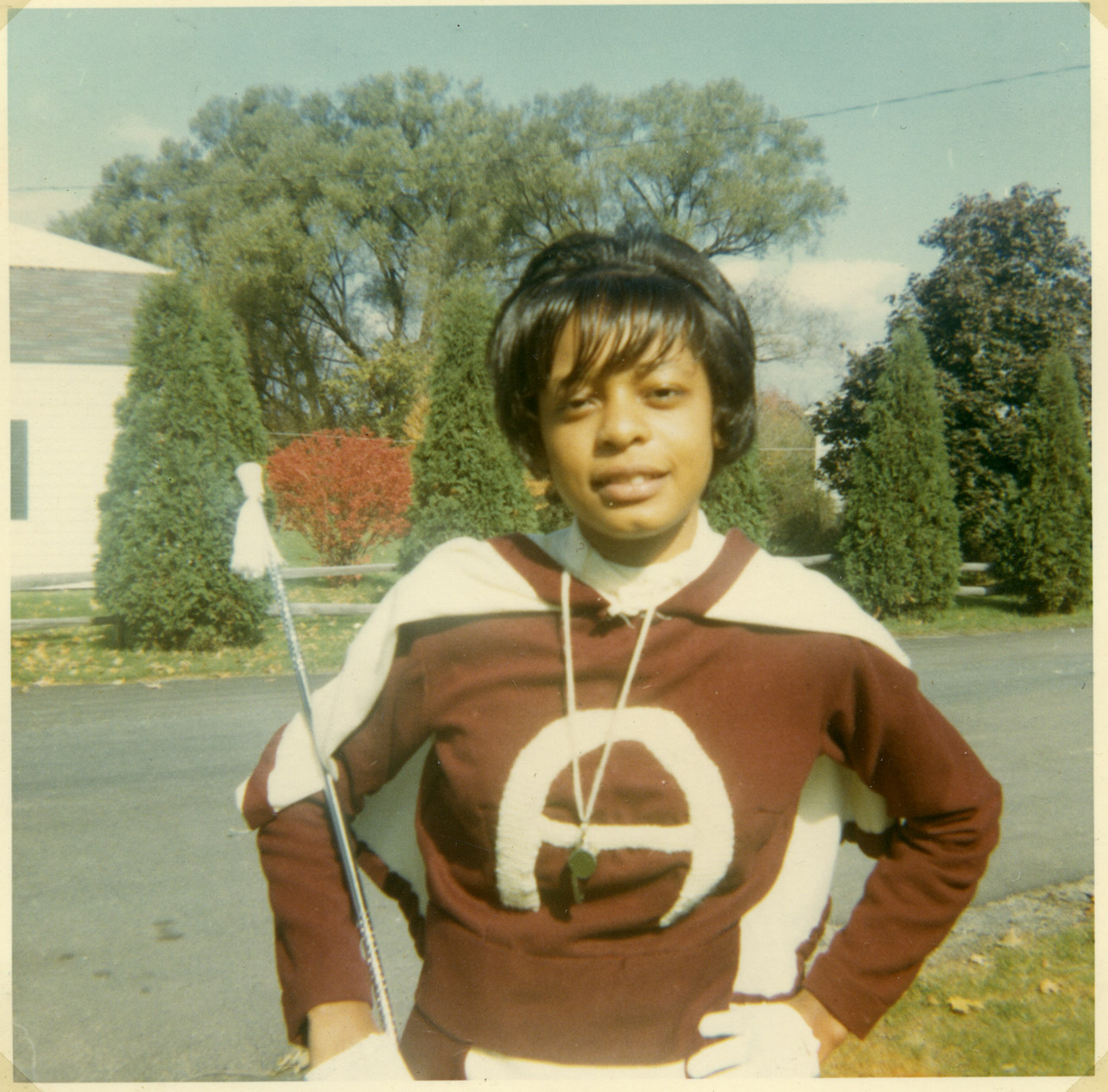Background on Southern Student Project

Deborah Craig as an Amherst High majorette, 1966
Between 1957 and 1968, the Southern Student Project of the American Friends Service Committee brought academically gifted African American high school students from the south to live and study in the north. Working initially through its New York office, the AFSC announced its desire to bring "to promising young people, thwarted by the doctrine of the separation of the races, the fullest development of their gifts" while providing northern whites with "an experience which will increase our understanding and deepen our involvement with the human community."
From a single student in their first cohort to about a dozen per year in the early 1960s, the project was always small and it depended heavily on volunteers and elaborate coordination. Although they conceived of the project and played a key role in facilitating it, the role of the AFSC was limited: in addition to coordinating applications from students and hosts and providing limited financial support, the AFSC noted that actual arrangements for the exchange "must be made individually between the families concerned."
Applications to participate in the project were not overly elaborate. Students were asked to secure family support and to submit an essay on what they wished to accomplish. Host families agreed to provide room, board, and other essentials for the student throughout their junior and senior years, and they were expected to arrange for a local sponsoring committee, usually formed within the Monthly Meeting but also in church groups or parents' or community organizations. The committee, in turn, was expected to assist with arrangements and to prepare "the community and the school for the coming of the student," and as necessary, they were called upon to offer advice and personal counsel. The AFSC recommended also creating an inter-racial committee, "particularly in areas where there is a very small Negro population and where the host family and the sponsoring group is largely - or all -- white." Costs for the project were borne by all parties: hosts provided room and board, the students' families provided clothing and transport, and the local sponsoring committees and the AFSC helped defray the schooling and other expenses.
In July 1965, Francis W. Holmes was attending the National Friends Conference on Race Relations as a delegate from the Mount Toby Monthly Meeting (then the Middle Connecticut Valley Monthly Meeting) when he first learned about the Southern Negro Student Project, which just been renamed the Southern Student Project. Upon his return to Amherst, where he worked as a Professor of Arboriculture at the University of Massachusetts, Holmes began to build support within the Meeting and to form his sponsoring committee, which included Frances Crowe, Ethel DuBois, and Thomas Madigan from Mt. Toby Meeting, and Rosella Hill from the AFSC office in Cambridge, Mass. Through discussions with the Amherst-Pelham Regional School District, they quickly obtained remission on tuition for the year ($840) and carried on conversations with Holmes' neighbors to ensure community support.
Within a month, Holmes and his wife Becky were matched with Deborah Craig, a rising junior from Birmingham, Ala. An only child and the daughter of a steel worker and nurse, Craig described herself as a serious all-around student who enjoyed sports and reading, and she wrote that her goal was to become a registered nurse and perhaps serve in the military. Living with the Holmeses at their house at Berkshire Terrace during the school year, she became actively involved in school, returning to Alabama only for the holidays. She excelled academically, earning admission to the National Honors Society and graduating in the top 2% of her class in June 1967. Craig enrolled in the nursing program at Florida A & M University, but after her mother's health took a turn for the worse, she transferred to the University of Alabama Birmingham, where she graduated in 1972.

